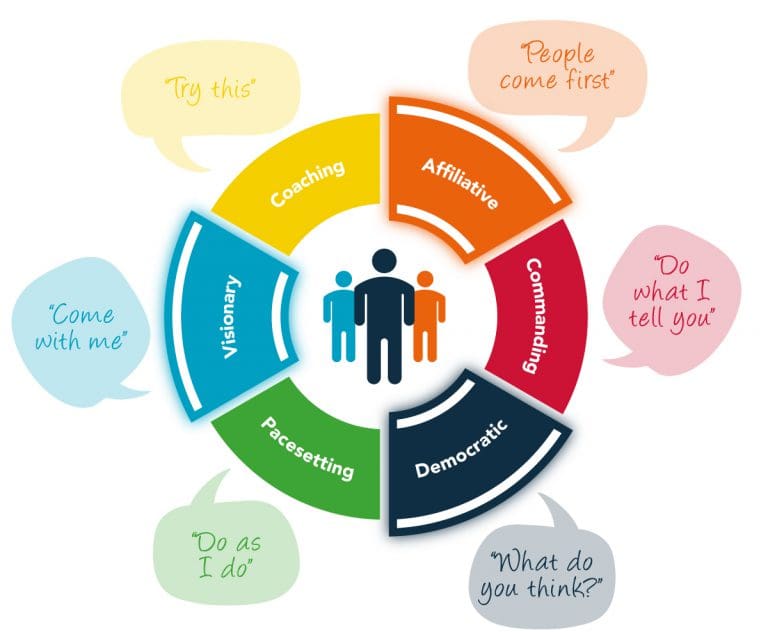Table of Contents
Using Data To Strengthen 4 Areas Of Employee Engagement in Fort Worth TX

Prior to the 2018 tax law changes, exchanges of individual property might certify under Area 1031. Exchanges of shares of business stock in different business did not certify. Likewise not qualifying were exchanges of partnership interests in various partnerships and exchanges of livestock of various sexes. As of a 2002 IRS judgment (see tenants in typical 1031 exchange), Renters in Common (TIC) exchanges are enabled - emotional intelligence.
In order to obtain complete benefit, the replacement home should be of equivalent or greater worth, and all of the earnings from the relinquished home needs to be used to acquire the replacement residential or commercial property - employee engagement. The taxpayer can not get the earnings of the sale of the old home; doing so will disqualify the exchange for the portion of the sale proceeds that the taxpayer received.
In this way, the taxpayer does not have access to or control over the funds when the sale of the old property closes. At the close of the relinquished home sale, the profits are sent by the closing agent (typically a title business, escrow company, or closing attorney) to the Competent Intermediary, who holds the funds up until such time as the deal for the acquisition of the replacement home is all set to close.
After the acquisition of the replacement home closes, the Qualifying Intermediary delivers the residential or commercial property to the taxpayer, all without the taxpayer ever having "constructive receipt" of the funds - Leadership training. The prevailing concept behind the 1031 exchange is that given that the taxpayer is simply exchanging one home for another property(ies) of "like-kind" there is absolutely nothing gotten by the taxpayer that can be utilized to pay taxes.
All gain is still secured in the exchanged property and so no gain or loss is "acknowledged" or claimed for income tax functions. Although it is not used in the Internal Revenue Code, the term "boot" is typically utilized in going over the tax ramifications of a 1031 exchange. Boot is an old English term significance "something offered in addition to." "Boot got" is the money or reasonable market worth of "other residential or commercial property" gotten by the taxpayer in an exchange.
"Other residential or commercial property" is property that is non-like-kind, such as personal effects, a promissory note from the purchaser, a promise to perform work on the property, a company, etc. There are many ways for a taxpayer to get "boot", even inadvertently. It is necessary for a taxpayer to comprehend what can result in boot if taxable income is to be prevented.
The Key To Employee Engagement: What Great Leaders Do in Flower Mound Texas

This will usually remain in the kind of "net money received", or the difference between cash gotten from the sale of the relinquished property and cash paid to get the replacement property(ies). Net cash got can result when a taxpayer is "Trading down" in the exchange (i. e. the list price of replacement home(ies) is less than that of the given up.) Financial obligation decrease boot which takes place when a taxpayer's debt on replacement home is less than the debt which was on the relinquished residential or commercial property.

Financial obligation reduction can be offset with money utilized to acquire the replacement residential or commercial property. Sale proceeds being used to pay non-qualified expenditures. For instance, service expenses at closing which are not closing costs. If earnings from the sale are used to service non-transaction costs at closing, the outcome is the very same as if the taxpayer had gotten money from the exchange, and after that used the money to pay these expenses.

e. lease prorations, energy escrow charges, tenant damage deposits transferred to the buyer, and any other charges unrelated to the closing - Leadership training. Excess loaning to get replacement residential or commercial property. Obtaining more cash than is needed to close on replacement property will not result in the taxpayer getting tax-free cash from the closing.

If the addition of exchange funds creates a surplus at the closing, all unused exchange funds will be returned to the Qualified Intermediary, presumably to be used to acquire more replacement residential or commercial property. Loan acquisition costs (origination fees and other costs connected to acquiring the loan) with respect to the replacement residential or commercial property must be brought to the closing from the taxpayer's personal funds.
Nevertheless, the IRS may take the position that these costs are being paid with exchange funds. This position is usually the position of the financing institution. At the present time there is no guidance from the IRS on this concern which is practical. Non-like-kind property which is gotten from the exchange, in addition to like-kind residential or commercial property (genuine estate).
Table of Contents
Latest Posts
The Importance Of Self-awareness And Emotional Intelligence ... Sunnyvale Texas
Self Awareness Meets Emotional Intelligence (Eq) - Dallas Texas
Emotional Intelligence And Self-awareness - Grapevine TX
Navigation
Latest Posts
The Importance Of Self-awareness And Emotional Intelligence ... Sunnyvale Texas
Self Awareness Meets Emotional Intelligence (Eq) - Dallas Texas
Emotional Intelligence And Self-awareness - Grapevine TX